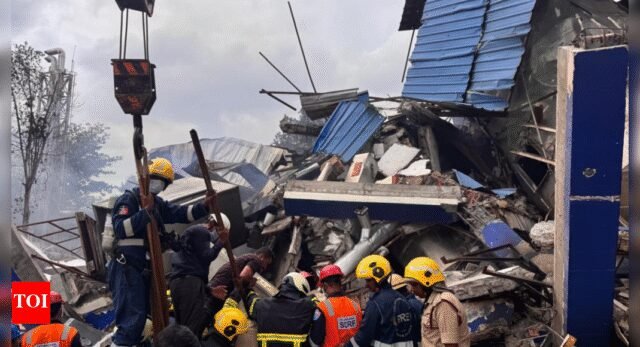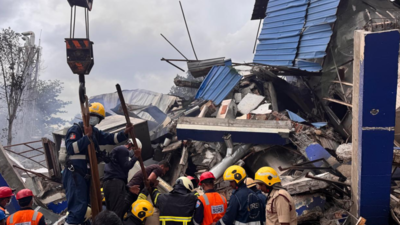HYDERABAD: The blast in Sigachi Industries has raised questions over safety practices, regulatory compliances, and enforcement in the pharma manufacturing sector, The June 30 blast, which left 44 people dead and many more injured, is the latest in a string of accidents that the sector has had at regular intervals.“The highest offices of the govt need to send out a strong message to the entire industry that there will be zero tolerance for such incidents,” said Ravi Udaya Bhaskar, former director general, Pharmexcil.“Regulatory authorities like the factories department, fire department, labour department, drugs controller, and boilers department should all be very strict and transparent. They should identify companies and conduct stringent risk assessment and risk-based inspections at regular intervals,” said Bhaskar, DG, All India Drugs Control Officers Confederation.Bhaskar also points out that a major factor for accidents could be ill-trained personnel. “A majority of the industry employs low-skilled and low-paid workers. Though Telangana has over 100 pharmacy colleges and several degree colleges, BPharm, BSc, and MPharm graduates don’t even get salaries between Rs 15,000 and Rs 20,000 per month.”“Salaries are so low that even Swiggy delivery persons may be earning more. Many companies are going for people who will work for even lesser salaries. So, in this process, they ship in unskilled migrant workers from other states,” he added.Dinesh Abrol, retired chief scientist, said such incidents could also be linked to the way industrial policy developed post-2000.“Large pharma companies try to squeeze the smaller ones. The result is they don’t have resources to make investments in safety and production control and end up cutting corners,” he said, adding “Many times payments are not made in time, and the smaller players work with old machinery.”








